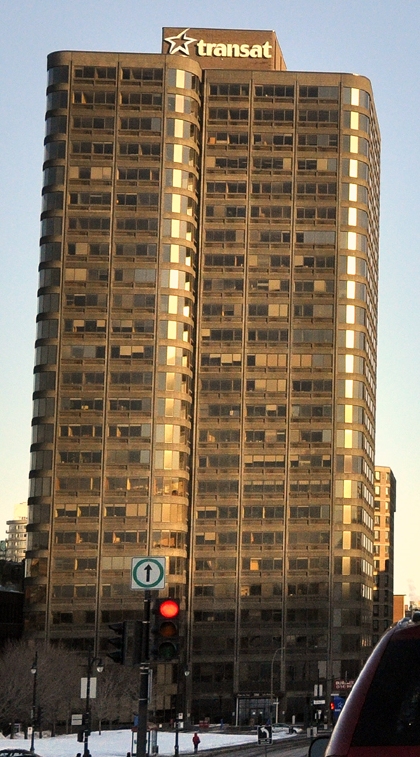
Consumers will likely see little change in their travel choices or ticket prices if Air Canada buys Transat AT Inc., industry observers said Friday.
They added it’s unlikely another bidder will upset the proposed merger, nor is it likely to be waylaid by required reviews by federal transport and competition regulators.
Shares in the parent company of airline Air Transat were little changed Friday after rising more than 13.4 per cent on Thursday to a closing price of $12.
That’s a dollar less than the $13 per share or $520 million offer Air Canada announced Thursday, as it said it had entered into a 30-day exclusive arrangement with Transat to try to negotiate its purchase.
Air Canada shares, meanwhile, rose by 1.6 per cent by 3 p.m. EDT on Friday to a new all-time high of $41.04.
“We do not expect a higher bid,” said analyst Kevin Chiang of CIBC World Markets in a report.
He said the offer represents a premium of 148 per cent over the 20-day average share price before Transat announced on April 30 that it was in discussions with unnamed parties for a potential sale.
Some observers said Thursday they fear a successful bid will result in fewer choices and higher ticket prices but AltaCorp Capital analyst Chris Murray said Friday there’s more likely to be an expansion ofroutes.
“As to competition and pricing, I don’t see the combination impacting competition as you still have a number of Canadian competitors including WestJet and the new ULCCs (ultra low-cost carriers), including Flair Airlines, as well as international carriers,” he said in an email.
Transat offers vacation packages, hotel stays and air travel under the Transat and Air Transat brands, with a primary focus on the transatlantic market during the summer and sun destinations through the winter.
The timing of Air Canada’s announcement was probably linked to last Monday’s news that Toronto-based Onex Corp. had struck a deal to buy Calgary-based WestJet Airlines Ltd. for about $3.5 billion, thus providing a funding source for growth, said independent airline analyst Rick Erickson.
But neither deal is expected to harm travellers.
“We’re going to see very little change in terms of consumer benefit and I see little if anything at all on the cost front,” he said.
He added he doesn’t know of any domestic party that can afford to outbid Air Canada, and pointed out foreign ownership of any Canadian airline is limited to 49 per cent, which makes a bid from outside Canada unlikely.
Travel consumers shouldn’t worry about a lack of competition if the two airline announcements go forward, said Wendy Paradis, president of the Association of Canadian Travel Agents.
“I think we certainly need to watch what happens, pay attention, but I think that, having two really strong carriers in Canada, there still will be lots of choice,” she said.
She added Canada’s other charter airlines such as Sunwing and Sunquest will continue to provide competition on Transat’s holiday routes.
On transatlantic routes this summer, Air Canada has 42 per cent of total industry seat capacity and Transat has 18 per cent for a potential combined 60 per cent, wrote National Bank analyst Cameron Doerksen in a report.
But he pointed out that new competitors are growing in the Canada-Europe market including WestJet and several Europe-based leisure-focused carriers.
The transaction would result in a combined Caribbean/Mexico sun destination market share of 46 per cent for Air Canada, he added.
“We see the sun destinations as less of a concern because there would still be two large and well-established competitors in Sunwing and WestJet Vacations, plus there is nothing stopping new entrants (including potential new ULCC start-ups in Canada) from entering these markets,” said Doerksen.
The deal provides for a break fee of $15 million payable by Transat if it accepts a superior offer.